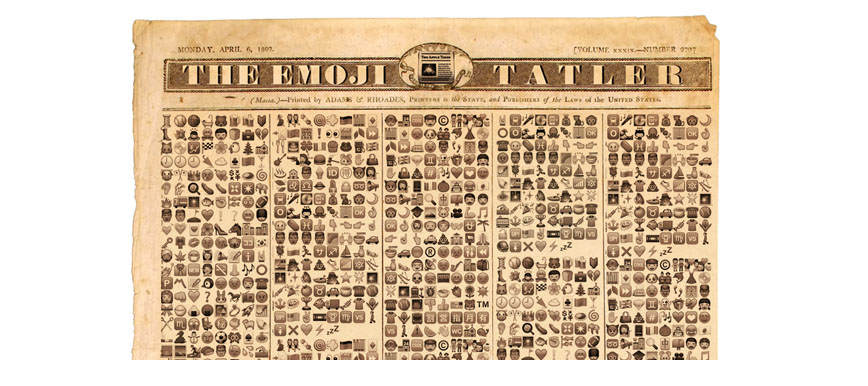
Why emojis are not the future of modern communication
“If you could have any superpower, what would it be?”
This is a question many of us have had to answer over the years of campfires and late-night contemplations. The answers can be as mischievous as invisibility, or as narcissistic as immortality- but the answer I’ve always been partial to is “universal language.”
Effective communication is the key to clarity. It’s a clear source of information, promotes discussion, changes attitudes, help socialization, and saves a lot of frustration when done properly. But because there is no universal language, it’s often hard to transcend our emotions in written text to larger audiences. This is especially true today where our primary form of communication is through a cloud. This is where emojis come into play.
Emojis fill the gap that has been missing from our digital communication. We have become limited in the way express ourselves behind a screen, and emojis help convey personal touches and body language. Whether you’re using it to emphasizing your sarcasm, soften the blow of a critique, cracking a joke, or just trying to relate to someone- they’re there because we are reassured by adding facial cues that aren’t present in text.
What we have to remember though is that emojis should only be used to emphasize the body language missing from digital communication. Recounting the story of The Iliad with emojis would not tell the same story as with written prose. This is one of the reasons why the Ancient Greeks are considered front runners of intellectual communication and language in the ancient world, and the Egyptians were left out of that revolution.
“Ancient American civilisations that used visual symbols as a language were oddly similar to Egypt in their mixture of grandeur and stasis. The Maya carved beautiful language icons, yet never developed metalwork, let alone tragic drama. There really is strong evidence that the abstract written word is essential to advance ideas, poetry and argument to their highest levels.”
While pictographs help reassure the mood of the text and correlate to our real life emotions, they can only tell us so much. We have moved forward a great distance since the age of illiteracy. We shouldn’t be falling back on rudimentary and subjective-based language as our primary form of communication.There are endless ways to express yourself with words, so don’t be intimidated, take advantage of the clear correspondence.
“If you could have any superpower, what would it be?”
This is a question many of us have had to answer over the years of campfires and late-night contemplations. The answers can be as mischievous as invisibility, or as narcissistic as immortality- but the answer I’ve always been partial to is “universal language.”
Effective communication is the key to clarity. It’s a clear source of information, promotes discussion, changes attitudes, help socialization, and saves a lot of frustration when done properly. But because there is no universal language, it’s often hard to transcend our emotions in written text to larger audiences. This is especially true today where our primary form of communication is through a cloud. This is where emojis come into play.
Emojis fill the gap that has been missing from our digital communication. We have become limited in the way express ourselves behind a screen, and emojis help convey personal touches and body language. Whether you’re using it to emphasizing your sarcasm, soften the blow of a critique, cracking a joke, or just trying to relate to someone- they’re there because we are reassured by adding facial cues that aren’t present in text.
What we have to remember though is that emojis should only be used to emphasize the body language missing from digital communication. Recounting the story of The Iliad with emojis would not tell the same story as with written prose. This is one of the reasons why the Ancient Greeks are considered front runners of intellectual communication and language in the ancient world, and the Egyptians were left out of that revolution.
“Ancient American civilisations that used visual symbols as a language were oddly similar to Egypt in their mixture of grandeur and stasis. The Maya carved beautiful language icons, yet never developed metalwork, let alone tragic drama. There really is strong evidence that the abstract written word is essential to advance ideas, poetry and argument to their highest levels.”
While pictographs help reassure the mood of the text and correlate to our real life emotions, they can only tell us so much. We have moved forward a great distance since the age of illiteracy. We shouldn’t be falling back on rudimentary and subjective-based language as our primary form of communication.There are endless ways to express yourself with words, so don’t be intimidated, take advantage of the clear correspondence.




